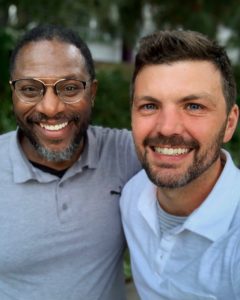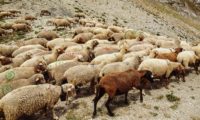Earning Trust is Bigger Than You

I remember sitting in the seats that summer Sunday morning in 2017 when Fellowship Monrovia announced from the stage they were launching a Center for Racial Reconciliation. I immediately took my phone out, snapped a picture of the slide on the screen with the info, and began sending it out to people back home.
We’d been a significant part of a church in Central Arkansas that had been homogenously white for two decades. But in it’s mid-twenties, was awoken to a fuller expression of the gospel. And so, with great intentionality, this church began to pursue multi-racial ministry and solidarity in the heart of the Bible Belt South. And we decided to go all-in. In our own workshops focused on race, we talked openly and honestly about white privilege and systemic racism.
Years later, as I looked into seminaries, I knew I needed to be somewhere that deeply valued this justice work of equity and inclusion. While Fuller was not perfect, it appeared to be years ahead of every other institution I looked into. And over the course of my three years there, I found a way every semester to intentionally learn more in this conversation. Sitting under the leadership of brilliant professors like Love Sechrest, Juan Martinez, and Hak Joon Lee, I began to develop an even greater burden and passion for anti-racism as a follower of Jesus. This work would always be critical to my work as a pastor.
In the convergence of all this movement in my life, I then accepted a pastoral position with Fellowship Monrovia. And in my first day of orientation, I was seated right next to John Williams, the Director for Fellowship’s new Center for Racial Reconciliation. As the white dude who was “awake” and aflame for this work, I tried to keep my “wokeness” in check. Hoping to play it cool while also communicating my deep desire to learn under John’s leadership. If you’ve ever seen Insecure on HBO, I was basically doing my best Frieda. Lisa Joyce nails that character in the most painful, awkward, and true way possible.
– – –
As John and I found our way to our offices, we were then placed right by each other at two mini-desks. I would attempt to engage in a conversation without being too much. I would share resources our church in Arkansas had created to reach our mostly white congregation years back. I would highlight an article or book I’d just read. I was trying to be enough without doing the most. But no matter what I tried, I couldn’t seem to move the needle. It was like there was an invisible barrier preventing the fullness of me to be seen.
In my whiteness, I’d never felt that boundary before. In my whiteness, I was always seen. Always heard. Always trusted. Always valued. Always embraced. Always esteemed.
This moment must have been then the most minuscule taste I could then have as a white man in this world to what it felt like for BIPOC in our country every single day. The invisibility. The inability to prove yourself. The impossibility of just being seen for who you are rather than the racialized history your skin color represented.
I thought of story after story I had heard. Listened to. Learned. Friends of color stepping into workplaces and having to fight twice as hard every single day just to gain half the credibility and credit as their white co-workers. I wondered how to prove myself to John. And then something happened.
– – –
There was a multiethnic church conference in Dallas. And John was a part of a crew from our church who went to attend. One of the main stage speakers at that conference was my dear friend, Inés Velásquez-McBryde. And as always, she was on fire that day. Speaking truth and dropping bombs and walking in the fullness of her calling.
After she walked off the stage, she had a chance to meet John and some of the Fellowship staff. And in that moment, something happened that forever changed my life.
This Latina sister of mine, who I had been close friends with for the past six years, advocated on my behalf toward this Black colleague of mine. She looked at John and said, “There is a white brother in your office who has done his homework. Who will show up. Who will learn under your leadership. Who will complement the work you’re doing. Who won’t take over. You can trust my friend and mi hermano, Bobby.”
John came back to work the next week and finally, for the first time in three months, turned the 90 degrees toward me and said, “So, what exactly were y’all doing at the church back in Arkansas that you were telling me about?”
– – –
In my privilege, I was rarely seen a representative of my people, but was instead able to always just be my own person. But John wasn’t here to play games. He was serious about this work of reconciliation. And he wasn’t going to let the first eager young white man he saw just jump right in on this journey. He had to know that those close to him in this could be trusted with the heart of what had been entrusted to him to oversee. And no matter how hard I tried, I couldn’t earn that trust solely on my own. I needed an advocate. I needed another person of color to be able to say: “He’s been tried and tested. I vouch for him.”
For white sisters and brothers in this work of racial justice, we cannot earn trust solely by our own doing. Yes, we need to consistently show up and stand in solidarity. Walk in solidarity. Live in solidarity. Over and over. But often, we also need a tried and tested and true relationship with a sister or brother of color to be able to advocate on our behalf. Someone who knows and loves and trusts us. Someone we have known and loved and earned trust from. Somehow who can see and say: this sister or brother is with us and for us.
– – –
In my partnership with John, I started by simply attending one of the workshops he led. And then, when John asked, I joined into the collaborative process. And later, I helped facilitate one. And then facilitate many. And before long, John and I developed a kinship and connectivity. We shared tables away from the office. Entered in homes. Our families began to know and love one another. We’d talk on the phone and email and share resources. And before I knew it, I began to consider John one of the best friends God had ever graced me with on this good earth. And even more, John began to consider me a true brother and friend of his as well.
Even as we moved back to Arkansas a year later, John and I stayed in touch. Our two families met in Montgomery, Alabama to attend the Equal Justice Initiative’s grand opening of their Legacy Museum and National Memorial for Peace and Justice. As we moved back to California in 2019, I was able to fill in for John’s college course one evening. And then facilitate a workshop again with John at Fellowship. Our collaboration and friendship has only grown over the years. And my partnership with this great man of God is one of the great stories of my life.
But I’m also more keenly aware now than ever before of the need to earn trust and walk in integrity as a white man in this world as I engage in relationships with people that don’t look like me. Ines, and now John, have both had to advocate for me many more times toward other BIPOC. And the skin I walk in carries with it not only the suspicion of supremacy, but also the historical manifestation of oppression and violence. I’ve learned to own that, even if I’ll never be able to embrace it. I’m instead aiming to walk in a redemptive reality. One where a white man in this world is not seen as some famed savior, but instead simply a fellow sojourner.
– – –
I understand why one would hesitate (or even resist) to embrace an all-too-eager white person in this work. Too many times an awakened white brother or sister has then taken over or walked away. A shooting star or a falling star. All the while shining their own light brightest.
But I don’t want to burn brightest. I just want a spot among these bright, beautiful stars. Place me in the corner of that constellation built by the leading of our BIPOC sisters and brothers and I’ll be just fine. I don’t need to shine alone or on my own. I just want to be a part of the light that shines brighter together. And better together.




Leave a Reply